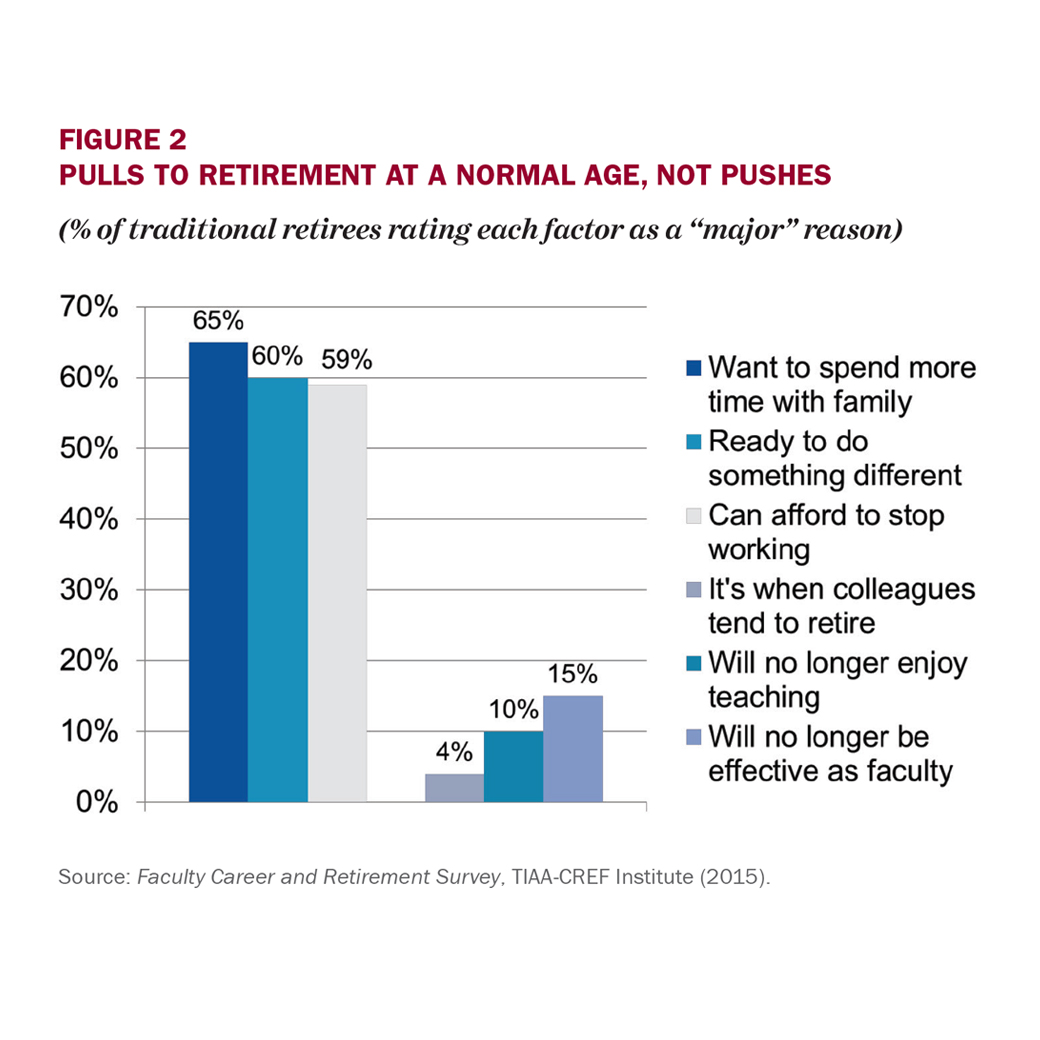Two-thirds of tenured faculty expect to work past normal retirement age—but their reasons for doing so may be based on faulty assumptions.
Summary
About a third of tenured faculty age 50 or older expect to retire by "normal" retirement age, while fully two-thirds anticipate working past that age or have already done so. This latter group is sometimes called "reluctant retirees," and when their numbers swell on campus, it can lead to productivity declines, limited advancement opportunities for junior faculty, a lack of openings for new hires, and difficulty reallocating institutional resources. This report, which describes senior faculty’s thought process concerning retirement, was written to help institutional leaders address the reluctant retiree phenomenon and better manage faculty retirement patterns.
Key Insights
- Faculty who expect to retire by the normal retirement age believe they can afford to retire and the prospect of retirement offers them something attractive. Only 10% feel they will no longer enjoy teaching when they reach normal retirement age.
- Personal finances are the main issue for faculty who would like to retire by normal retirement age but expect to work longer. However, less than one-half of this group has actually done a careful evaluation of when they can afford to retire.
- Faculty reluctant to retire by choice tend to assume that nothing outside academe could provide the same level of professional fulfillment. But this is an unexamined assumption, as most have not carefully considered what they could do if retired.


